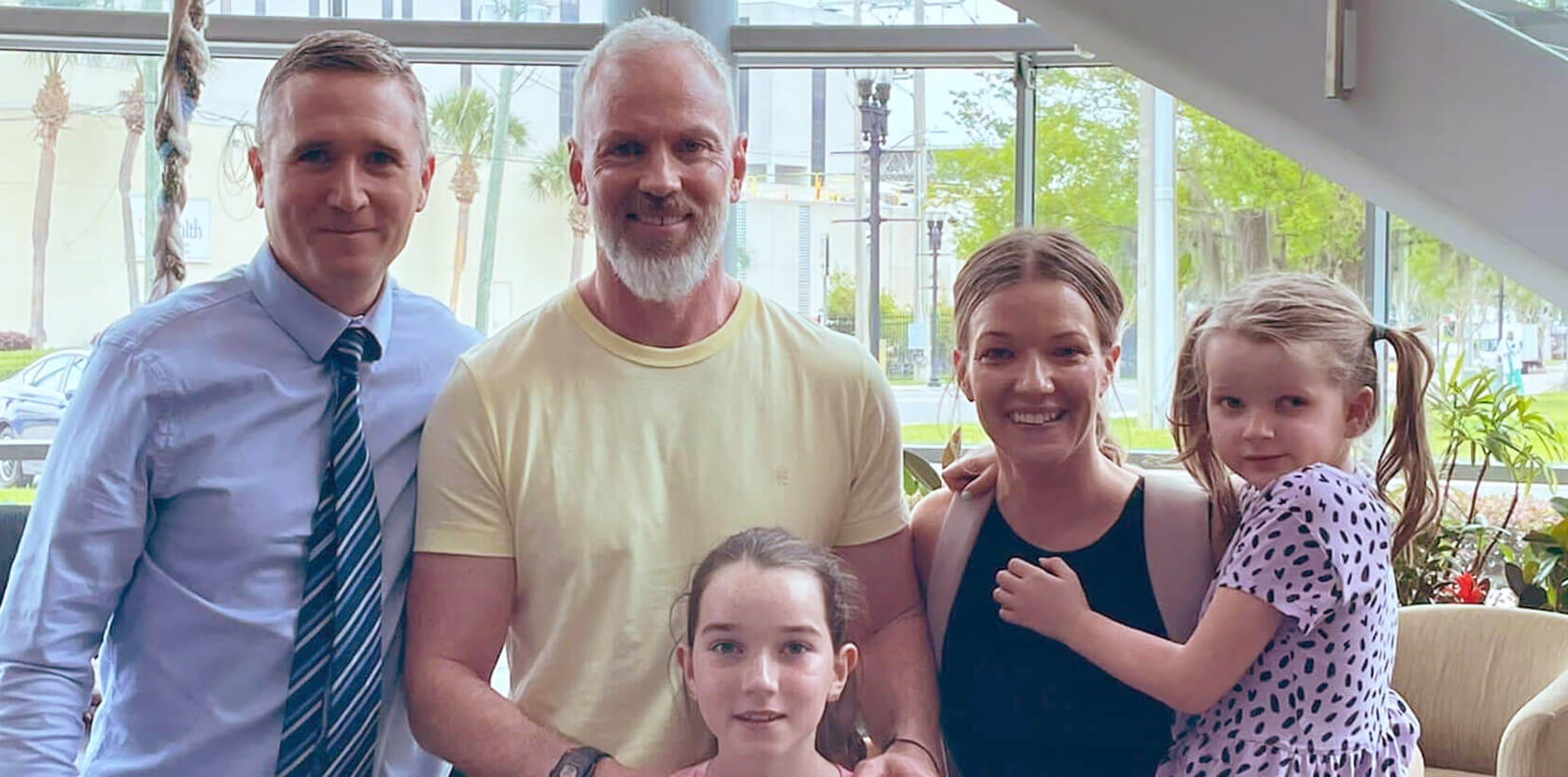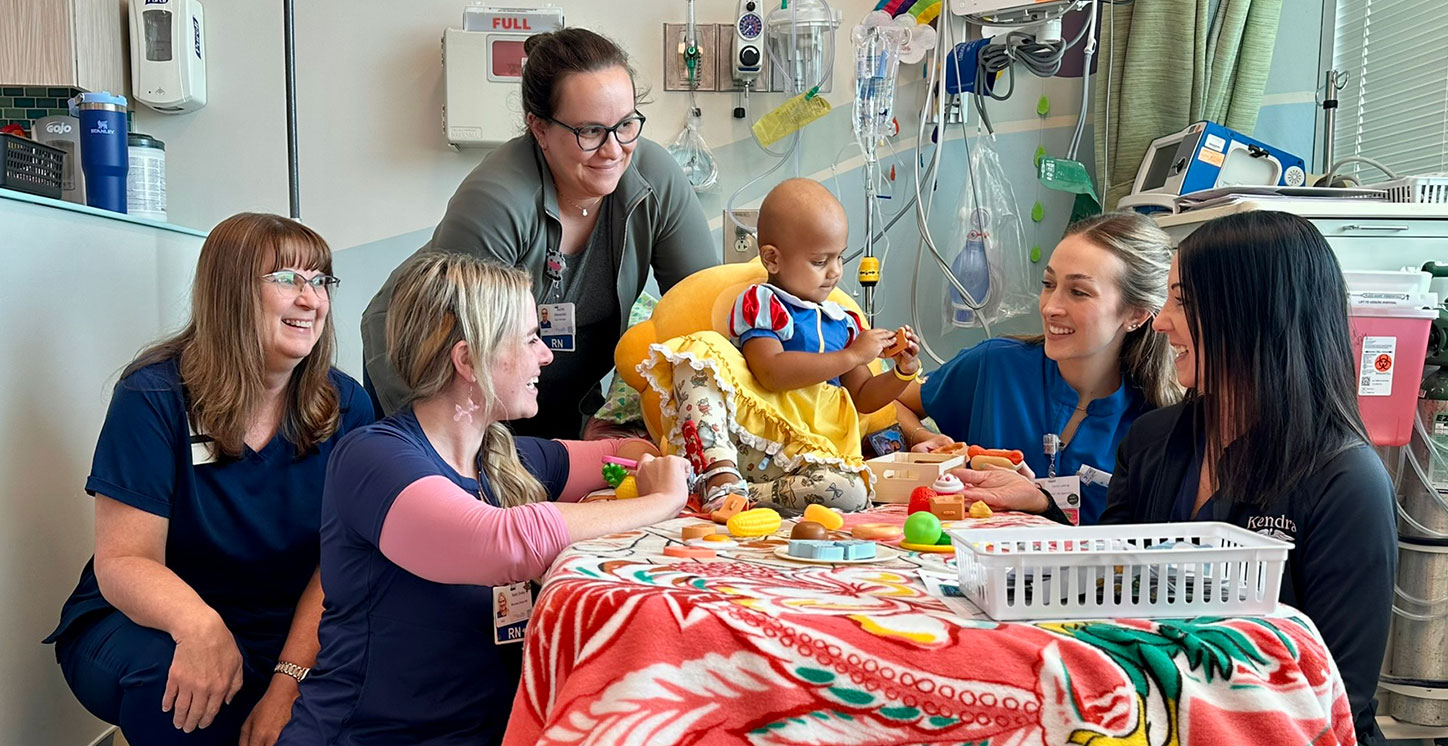
Getting to Know Dr. Danny
Best known as Dr. Danny to his patients, Dr. Daniel Indelicato leads the University of Florida pediatric radiotherapy program and is a tenured Professor and Associate Vice Chair of the University of Florida Department of Radiation Oncology.
What sparked your interest in pediatric radiation oncology and how has your passion for this field evolved over time?
I like the rapid pace of evolving technology, constantly driving our field forward. I enjoy the team aspect of what we do, collaborating with diverse members of our department working toward a common goal, including nurses, social work, child life, physicists, dosimetrists, therapists, as well as other pediatric physicians who operate on tumors and prescribe chemotherapy. But most rewarding to me are the patient interactions. Taking care of children with cancer is a fulfilling career, a profession where one is offered a clear sense of purpose and impact. That keeps me going through difficult days. Every week among these patients and their families, I see remarkable examples of courage, resiliency and compassion. It is a privilege to be part of their journey and share these moments. The children and their families who come to the University of Florida and the Institute place tremendous amount of trust in our medical team during a very difficult time. I never take that for granted.
Can you describe our pediatric program's unique strengths?
We are one of the largest pediatric radiotherapy programs in North America and have treated nearly 2,500 children over the past 19 years. Multiple studies show that children with cancer have better outcomes when treated at high volume centers. We have access to the most advanced radiation technology in the world and work with international leaders in pediatric neurosurgery and pediatric oncology. Unlike many proton centers, we are part of a designated NCI cancer center and contribute to the academic mission of the University of Florida, widely regarded as one of the top research universities in the United States. That means our patients and their families have access to the latest clinical trials and advanced therapy. As part of our academic mission, we are responsible for training the next generation of radiation oncologists. We host all residents from the University of Florida, Mayo Clinic and Moffitt Cancer Center for their pediatric radiotherapy training. That gives us the ability to positively influence pediatric cancer care far into the future.
What are the most promising emerging trends and innovations in pediatric radiation oncology, and how do you see them impacting patient care and treatment outcomes?
When most radiation oncologists are asked this question, they quickly jump to innovative tools or software that allow us to better kill cancer cells or reduce side effects. I understand this. In the two decades since I graduated from medical school, we have benefited from unprecedented leaps in technology and that will continue. But I am equally excited by how we have transformed the environment of care for children undergoing radiotherapy. The University of Florida was one of the first academic medical centers to build a multidisciplinary team exclusively devoted to pediatric patients embedded within a traditional radiation oncology department. That involves subspecialized pediatric nurses and an anesthesia team, as well as social support tailored to childhood cancer patients and their families. It means devoting resources toward pediatric-themed spaces and a wide range of programming that matches our patients’ developmental stage. Although these efforts are more abstract than a new cyclotron or medical device, I have come to believe the care environment is every bit as important to our mission in caring for children with cancer.
Can you share one of your current or upcoming research projects?
My research is devoted to better understanding the side effects of radiation in children and how we might use advanced technology to reduce the impact of our treatment. I am constantly learning, and it is part of my job as a professor at the University of Florida to share that knowledge with others. In this effort, I am fortunate to have research collaborators from all around the world.
What are two things you want readers to know:
- In the United States, we have a healthcare system that undervalues the work of pediatric nurses, child life specialists, social workers and other non-medical personnel who have a profound impact on children and families during their cancer treatment. This is wrong. Our department has only been able to offer these programs through generous philanthropy and the impassioned advocacy of our patients. We are in debt to each of these individuals.
- One of the most frequent questions I encounter is whether working with childhood cancer is “depressing”. Some days are difficult — and they should be. But on other days, when a proud parent sends me a graduation announcement or a former patient sends me a photo of their own new baby, it is not depressing, but rather a mix of joy and inspiration. My weeks are filled with moments like these, and they are gratifying.


